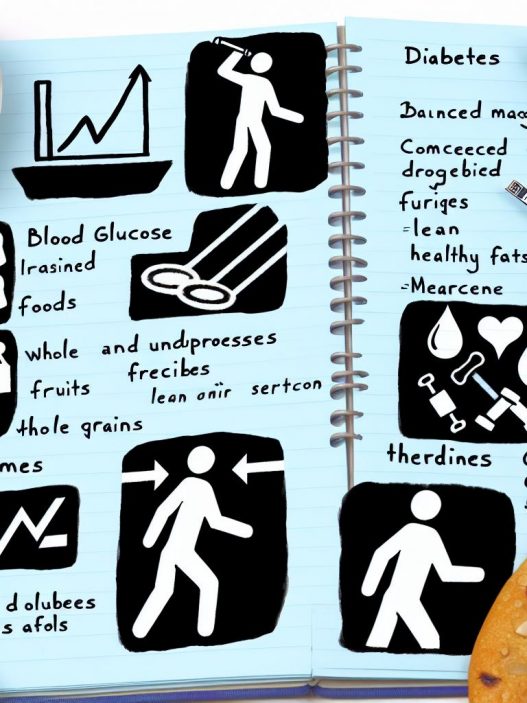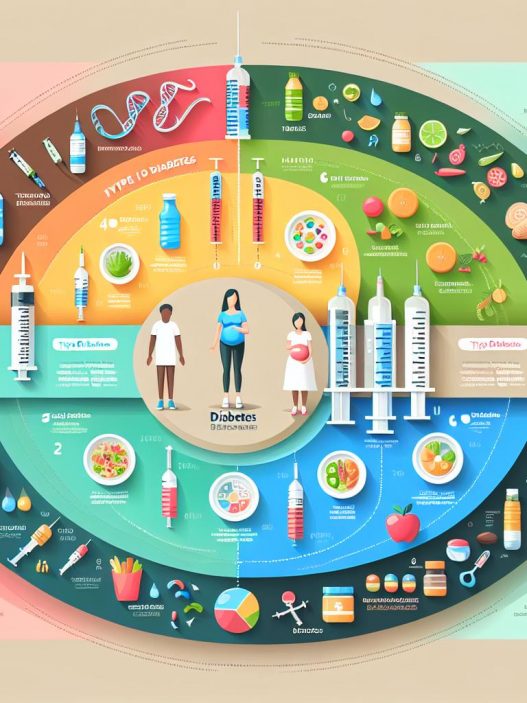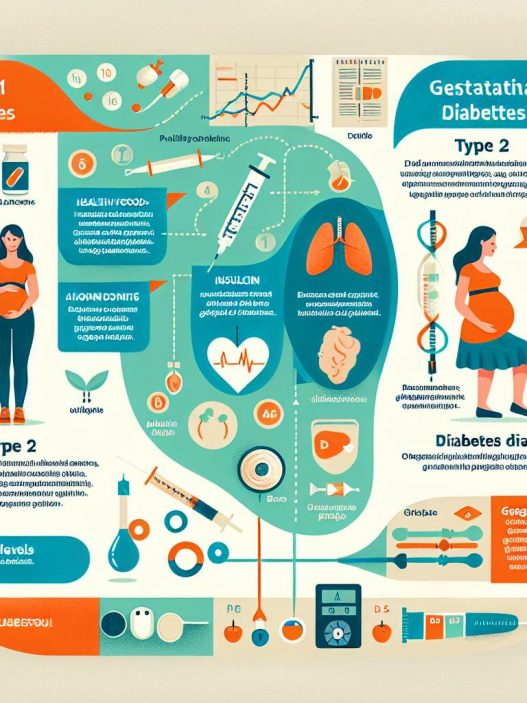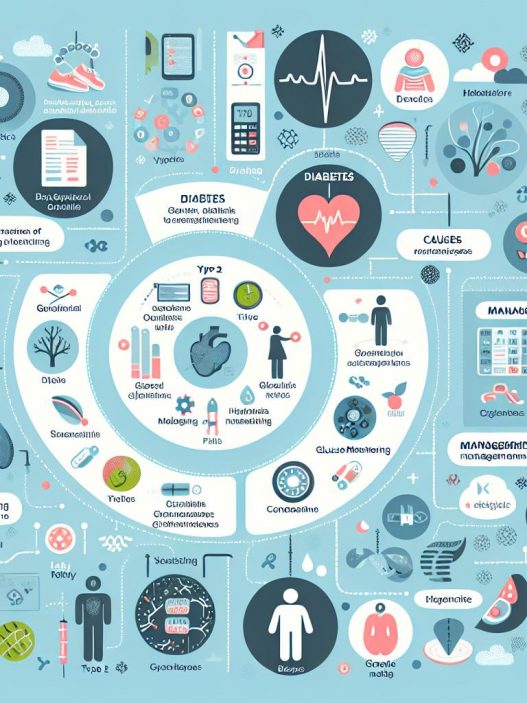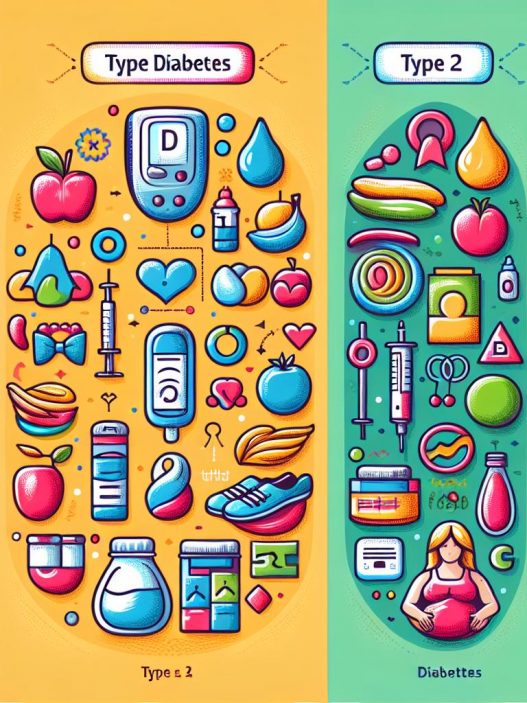# Essential Tips for Managing Gestational Diabetes Effectively
Managing gestational diabetes is crucial for the health of both the mother and the baby. This condition, often diagnosed in the second or third trimester of pregnancy, requires careful monitoring of blood sugar levels, a balanced diet, and targeted physical activity to reduce risks. In this comprehensive guide, we will provide essential tips for effectively managing gestational diabetes and ensuring a healthy pregnancy.
Understanding Gestational Diabetes
Gestational diabetes is a type of diabetes that develops during pregnancy and typically goes away after giving birth. It occurs when the body cannot produce enough insulin during pregnancy, leading to elevated blood sugar levels. Recognizing the signs and risk factors is essential for timely diagnosis and management. Women who are overweight, have a family history of diabetes, or are over the age of 25 are at a higher risk of developing this condition.
Moreover, understanding the potential complications associated with unmanaged gestational diabetes is critical. These can include excess fetal growth leading to delivery complications, low blood sugar levels in the newborn, and a higher chance of developing type 2 diabetes later in life. Therefore, taking proactive steps to manage blood sugar levels is essential for the health of both mother and child.
Healthy Eating Strategies for Gestational Diabetes
One of the most effective ways to manage gestational diabetes is through a balanced diet. This involves consuming a variety of foods while keeping carbohydrate intake in check. Focusing on a nutrition plan that emphasizes whole foods can help stabilize blood sugar levels. Here are some effective strategies:
1. **Incorporate Complex Carbohydrates**: Choose whole grains, legumes, and high-fiber foods, as these release glucose more slowly into the bloodstream. Avoiding simple sugars found in sweets and processed foods can help maintain steady blood sugar levels.
2. **Portion Control**: Monitoring portion sizes is crucial. Eating smaller, more frequent meals can help manage hunger and maintain blood sugar levels throughout the day. Keeping a record of meals can also help identify foods that spike blood sugar levels.
3. **Balance Macronutrients**: Each meal should include a good balance of carbohydrates, protein, and healthy fats. This balance helps regulate blood sugar levels and provides essential nutrients for both the mother and the developing baby.
Monitoring Blood Sugar Levels
Regular monitoring of blood sugar levels is a cornerstone of gestational diabetes management. By keeping a close eye on blood sugar fluctuations, you can make informed decisions regarding your diet and lifestyle. Here are some practical tips for monitoring blood sugar levels effectively:
1. **Regular Testing Schedule**: Work with your healthcare provider to establish a blood sugar testing schedule that fits your needs. This may involve checking levels several times a day, including fasting levels in the morning and post-meal levels.
2. **Understanding Blood Sugar Targets**: Knowing what your target blood sugar levels are important for effective management. Generally, optimal levels should be below 95 mg/dL (5.3 mmol/L) after fasting and below 140 mg/dL (7.8 mmol/L) one hour after eating.
3. **Keep a Record**: Maintaining a log of your blood sugar readings can help identify patterns and triggers. This log can be beneficial for discussions with your healthcare team to make necessary adjustments to your treatment plan.
Exercise and Physical Activity
Engaging in regular physical activity is another essential component of managing gestational diabetes. Exercise promotes insulin sensitivity, aiding in better blood sugar control. Here are some practical suggestions for incorporating exercise into your routine:
1. **Consult your Healthcare Provider**: Before starting any exercise program, consult with your healthcare provider to ensure safety and to tailor an appropriate exercise plan that suits your individual needs.
2. **Aim for Consistency**: The goal should be at least 150 minutes of moderate-intensity activity per week. This could be broken down into 30-minute sessions on most days. Activities such as walking, swimming, and prenatal yoga can be beneficial.
3. **Listen to Your Body**: Pay attention to how your body responds during and after exercise. If you feel fatigued, dizzy, or experience any discomfort, stop and consult your healthcare provider before resuming exercise.
Managing Stress Levels
Stress can significantly impact blood sugar levels, making it essential to find effective ways to manage stress during pregnancy. Here are some strategies to keep stress in check:
1. **Mindfulness and Relaxation Techniques**: Practices such as meditation, deep breathing exercises, and prenatal yoga can help reduce stress levels. These techniques not only foster relaxation but also improve overall well-being during pregnancy.
2. **Seek Social Support**: Connecting with family, friends, or support groups can provide emotional support and encouragement. Sharing experiences with other women with gestational diabetes can create a sense of understanding and camaraderie.
3. **Prioritize Self-Care**: Taking time for yourself, even in small doses, is crucial. Whether it’s a quiet moment with a book or a relaxing bath, self-care helps recharge your mental health, contributing to better overall management of your condition.
Working with Healthcare Professionals
Collaboration with healthcare professionals is vital for effectively managing gestational diabetes. A comprehensive approach can yield the best outcomes for you and your baby. Consider the following:
1. **Regular Check-Ups**: Schedule routine appointments with your healthcare provider to monitor both your health and the baby’s health. These check-ups allow for adjustments to the management plan as needed.
2. **Engaging a Nutritionist**: Working with a registered dietitian familiar with gestational diabetes can provide tailored meal plans. They can offer personalized guidance on food choices and portion sizes while ensuring nutritional needs are met.
3. **Education and Resources**: Utilize educational materials and resources from healthcare providers, which can offer insights into gestational diabetes management. Understanding the condition empowers you to take charge of your health.
Conclusion: Taking Charge of Your Health and Well-Being
Managing gestational diabetes is a multifaceted approach that involves dietary management, monitoring blood sugar levels, regular exercise, and collaborating with healthcare professionals. By implementing these essential tips, you can take proactive measures to ensure a healthy pregnancy and reduce risks for both you and your baby. Remember, being informed and actively involved in your care is the best strategy for managing gestational diabetes effectively.
In conclusion, while gestational diabetes can present challenges during pregnancy, with the right strategies and support, you can navigate this condition successfully. Prioritize your health and well-being during this important time, and embrace the journey toward a healthy pregnancy.















